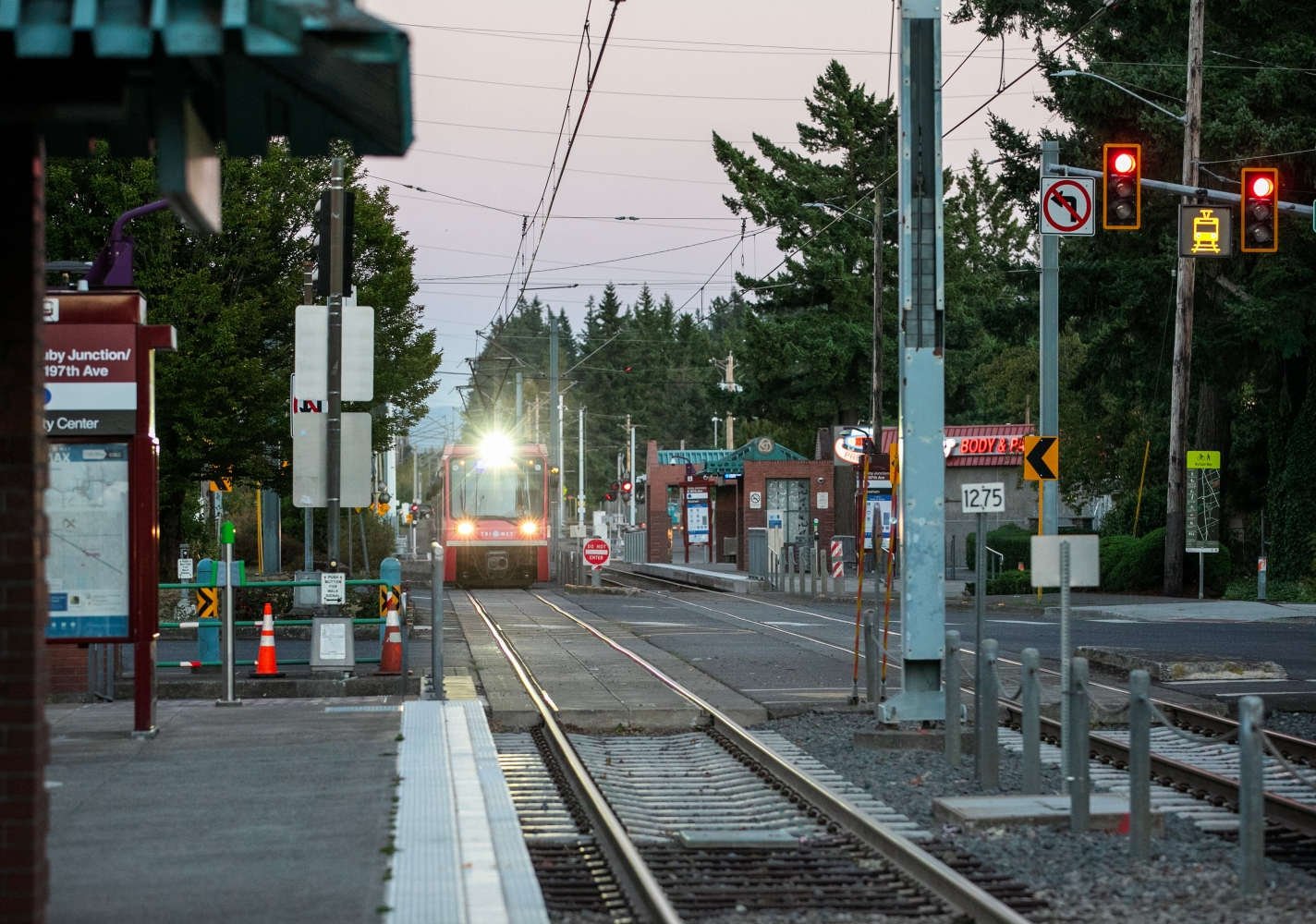

Published on: 10/21/2025
This news was posted by Oregon Today News
Description
Note: This story contains details of violence.
When Patrick Coomer reaches the end of his bus route, the last remaining passengers usually get off.
But one night this summer, as the TriMet bus operator of 13 years pulled to his last stop in North Portland, one rider stayed seated.
The rider — who Coomer thought might have been intoxicated — had been on the bus for more than an hour.
Coomer asked him to leave. He said the rider became agitated and turned to him with a question.
“How would you like to be stabbed tonight?”
Coomer was deeply shaken. “It ruined me for the rest of the night,” he said.
The man eventually backed off and walked away. It wasn’t the only time Coomer felt unsafe on his bus.
“Every time I leave this house, I don’t know if I’m gonna come home again,” he said. “Some people think that’s a little too melodramatic, but not from what I’ve seen.”
TriMet making investments to boost safety, bring back riders
TriMet, Oregon’s largest public transportation system, has nearly 500 security personnel. They do everything from directing riders to social services to enforcing TriMet’s rules for riding. But only a few dozen of them are armed law enforcement officers.
Now, TriMet has signed a new contract with the Portland Police Bureau to bring five officers and a sergeant to the Transit Police Division. The transit police have also added three more officers from the Port of Portland Police Department and a lieutenant from the Multnomah County Sheriff’s Office.

The transit police is made up of officers from multiple law enforcement agencies. They respond to calls and patrol buses, trains and platforms. They also clamp down on drug use and other crimes through targeted police interventions near stations.
This is the first time Portland police have been part of the transit police since the city pulled them from TriMet in 2020. That was one of several changes to policing announced by then-Mayor Ted Wheeler in the wake of widespread social justice protests after George Floyd’s murder by a Minneapolis police officer.
The number of transit police has fluctuated over the past decade. At its peak, the unit had 65 law enforcement members. With the new additions, it now has 31.
“Simply just a visible [police] presence can discourage crime before it happens and reassures TriMet’s riders,” Transit Police Captain Matt Jordan said.
Police calls down on TriMet, but safety concerns remain
National data shows crime on public transit spiked during the COVID-19 pandemic.
On TriMet, calls for police service fell by almost half from 2021 to 2024. Still, when the agency surveyed thousands of riders and non-riders across the Portland metro area last year, only about half the respondents said they’d feel safe riding TriMet.
The same survey found 82% of respondents cited other riders’ nuisance or aggressive behavior as the main reason they felt unsafe. The second biggest reason was a lack of transit police.
And visible problems like homelessness and drug use — many of which spill onto public transit — have left some riders feeling vulnerable.
“I carry mace with me everywhere,” said passenger Michelle West, who lives in Northeast Portland. “I definitely don’t feel safe.”
West has seen passengers drinking, acting erratically and even getting into fights.
“I’ve seen two girls get into a fight the other day at a bus stop and they just beat the crap out of each other. And nobody said anything, because everybody’s just so used to seeing it,” she said.

According to a 2024 transit police report, officers responded to 4,387 calls for police service on TriMet. But due to limited staffing, it was law enforcement from other jurisdictions — not the transit police — who responded to most of those calls.
“With more deputies and more officers, we hope that certain incidents can be handled faster,” said Jordan, the head of the transit police.
The Multnomah County Sheriff’s Office oversees transit police operations. Last year, it investigated 152 violent incidents on TriMet, including threatening and menacing. That’s roughly 12 per month. TriMet’s current monthly ridership is over 5 million.
Andrew Wilson, TriMet’s chief safety officer, said more law enforcement should also go hand in hand with better security technology.
“If you look at public transit across the entire country, everyone has law enforcement,” he said. “But what you also need is all these other tools that we’ve developed.”
Portland area’s TriMet responds to safety issues
Some of those tools are improved surveillance cameras, a rider security hotline and upgraded LED lighting. TriMet is also installing blue light security phones across the system — the kind commonly seen on college campuses.
“The combination of everything is definitely helping,” said Delisa Guerrero, a former cement mason who’s been riding TriMet for more than 20 years. She said she mostly feels safe on the system, except for certain bus stops at night.
But she also said some of what she’s seen — like open drug use and fights — might require police support.
“Don’t get me wrong. I’m not a fan of cops, but I do think [they] might be necessary on some of the bus lines and just some of the bus stops,” Guerrero said.

What’s still missing, according to TriMet’s union
Some current and former TriMet staff say the agency is still coming up short.
Bruce Hansen was a bus operator before he became president of the transit union ATU 757 last year. He said TriMet needs to better enforce code — the agency’s rules for riding, like paying fare, not using drugs or disturbing others.
But Hansen said TriMet hasn’t hired enough of the right staff to do it.
More than half of TriMet’s nearly 500 security personnel are contracted, unarmed security guards from Allied Universal Security Services. Allied guards can ask riders to leave, but they can’t formally enforce code by inspecting fares, issuing citations or banning riders.

Only TriMet’s customer safety supervisors — or “code enforcers” — have that authority. About 50 of them patrol the system, conduct fare checks and make sure riders follow the rules.
“I tell them [TriMet], ‘You have allowed this system to get out of control the way it is by not enforcing code, by thinking that a uniformed security guard is going to fix your problem,’” Hansen said.
Roberta Altstadt, TriMet’s communications director, said TriMet isn’t currently hiring additional code enforcers but has hired other contracted staff to support them.
Meanwhile some operators have welcomed more transit police.
Bus driver Coomer said police remind him of a time he felt safer.
“I used to have a cop get on and ride a stop or two downtown [and] say ‘Hey, how’s it going, man? Are you doing OK?’” Coomer said. “The more the merrier. Just having a presence is a deterrent.”
But he also said TriMet, passengers, staff and the union need to have more open conversations about safety.

News Source : https://www.opb.org/article/2025/10/21/portland-police-trimet-transit-police/
Other Related News
10/21/2025
The Atlanta rapper is opening up about dealing with schizophrenia and how his wife Keyshia...
10/21/2025
We continue cheering the season with pumpkin recipes and delicious snacks perfect for kid...
10/21/2025
Im beyond grateful no one was killed said owner Miranda Adnan
10/21/2025
In total 37 pretzels contaminated with oven cleaner were distributed at school lunch
10/21/2025









